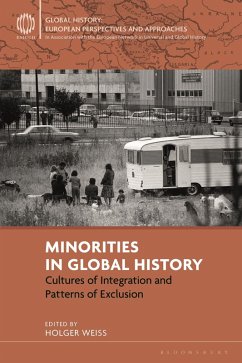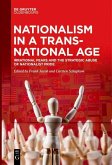This collection analyses the concept of minority and minorities in global history. Taking transnational, transregional and comparative approaches, it explores narratives of inclusion and exclusion both conceptually and through case studies.
Exploring examples of marginalization in Imperial Russia, early-20th century Korea, WWII China and Postcolonial Africa amongst others, the chapters in this volume seek to understand the entanglements of 'fluid minorities' and native populations in various historical settings. They explore dynamics between nation states and empires, minority-majority processes in (post)imperial and (post)Soviet contexts, fourth world perspectives and transnational minority movements. Taken together, the contributions to this collection address the exposure to and challenge of historical and contemporary treatments of marginalization, exclusion, belonging and inclusion in global history.
Exploring examples of marginalization in Imperial Russia, early-20th century Korea, WWII China and Postcolonial Africa amongst others, the chapters in this volume seek to understand the entanglements of 'fluid minorities' and native populations in various historical settings. They explore dynamics between nation states and empires, minority-majority processes in (post)imperial and (post)Soviet contexts, fourth world perspectives and transnational minority movements. Taken together, the contributions to this collection address the exposure to and challenge of historical and contemporary treatments of marginalization, exclusion, belonging and inclusion in global history.









